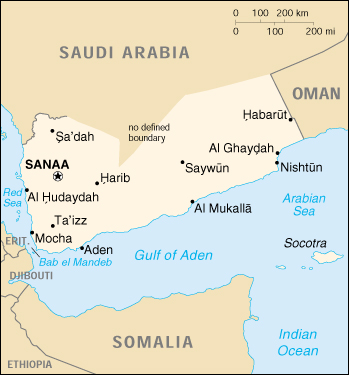The revolutionary movement in Yemen sparked by the youth has been somewhat neutered after the U.S.-backed transfer deal left Yemenis with a purportedly “transitional” government and an abiding Saleh-like dictatorship.
 The youth activists were the driving force behind the movement that forced a change in leadership in the U.S. client state. They were the first to hit the streets and demand reform and for former President Ali Abdullah Saleh step down. Opposition parties and tribal coalitions soon followed, unified by one goal: ousting Saleh.
The youth activists were the driving force behind the movement that forced a change in leadership in the U.S. client state. They were the first to hit the streets and demand reform and for former President Ali Abdullah Saleh step down. Opposition parties and tribal coalitions soon followed, unified by one goal: ousting Saleh.
But “independent activist leaders say they were manipulated by the opposition parties, which agreed to a deal with the government last year and are now sharing power with Saleh’s ruling party,” reports the Washington Post. Now only the reform-minded youth movement continues to demand change, as the opposition parties vie for power in the post-Saleh dictatorship.
Yemenis voted last week in a referendum on a transition deal to formally depose former Saleh and elect his deputy Abdrabuh Mansur Hadi, who was the only name on the ballot, as President.
The youth movement did not support the U.S.-backed power-transfer to Hadi and especially objected to the clause granting total immunity for Saleh and his government for the crimes they committed while suppressing popular protests. Now they’re being left out of the process as Saleh-era factions shape Yemen’s future.
“This revolution has been stabbed in the back,” said Khaled al-Anesi, a lawyer and one of the core leaders of the revolt. Tens of thousands of Yemenis demonstrated in the capital Sanaa on Monday, chanting, “The people want to prosecute the murderer,” referring to Saleh.
U.S. policy toward Yemen – namely, to support a brutal dictatorship that will implement equally brutal counterterrorism policies – is expected to remain largely the same. “Since the mujahedeen war against the Soviets in Afghanistan in the 1980s and continuing after 9/11,” Jeremy Scahill recently wrote in Nation magainze, “Saleh has famously milked the threat of Al Qaeda and other militants to leverage counterterrorism funding and weapons from the United States and Saudi Arabia, to bolster his power within the country and to neutralize opponents.”
The Obama administration has been launching drone strikes in Yemen, killing many innocent people and fueling support for al-Qaeda in the Arabian Penninsula, according to the report by Scahill. And despite signs that Hadi, or whatever other Saleh-type deputy takes his place, will continue to suppress democracy, U.S. support continues.


